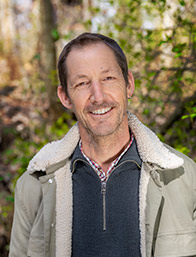My main focus is on spatial predictive modelling of all types of organisms (plant, animal, fungi, microorganisms) distributions, and the communities they form (see Guisan & Zimmermann 2000, Guisan et al. 2002, Guisan & Thuiller 2005, Guisan et al. 2006, Araujo & Guisan 2006, Guisan & Rahbek 2011, Guisan et al. 2013, Guisan et al. 2014, Guisan et al. 2017, Guisan et al. 2019; see Publications). Besides theoretical and methodological interests in understanding and predicting species niches and distributions, my group is developing models for various applied purposes, such as rare species management, assessing the potential impact of climate change on species, anticipating biological invasions, and supporting spatial conservation planning. Our lab is also affiliated to the "Laboratory for Conservation Biology" of the University of Lausanne.
The main focal study area for model development is the Swiss Alps of Canton de Vaud, a mountainous landscape near Lausanne, ranging from 400 to 3200 m, also a priority study area for the whole University (see RechAlp platform: http://rechalp.unil.ch). My group also works at larger scales: Switzerland, Europe, World.
For more detailed on my projects, see my lab’s Research pages.
Curriculum Vitae
Married, three children
2017-
Full Professor (Professeur Ordinaire) in Spatial Ecology, 50% in the Faculty of Biology & Medicine, 30% in the Faculty of Geosciences & Environment
(https://www.unil.ch/fbm/fr/home/menuinst/communication/nouveaux-professeurs/2017/guisan-antoine.html)
2007-
Associate Professor in Ecology, University of Lausanne, 50% in the Faculty of Biology & Medicine, 30% in the Faculty of Geosciences & Environment
2001 -
Assistant Professor in Biogeography and Spatial Ecology, University of Lausanne
1998-2001 -
Permanent position at Swiss Center for Faunal Cartography (CSCF), Neuchâtel (Predictive habitat distribution models, GIS)
1998-1999 -
Postdoc at the Conservatoire et Jardin Botaniques (CJB) in Geneva (Plant distribution modelling, climate change, Swiss Alps)
1997 -
Postdoc at Standford University, Center for Conservation Biology (Plant Distribution Modeling
1993-1996 -
PhD from the University of Geneva (Plant distribution modelling, climate change, Swiss Alps)
1996 -
Postgraduate Master in statistics from the University of Neuchâtel (Multivariate analyses of alpine vegetation)
1992 -
Master from the University of Geneva, Master project at FOREL Limnology Institute, in Algal Bioassays
Awards & Recognition
- Distinguished Fellow Award of the International Biogeography Society (IBS), 2022
- Research.com Ranking of Top 1000 Scientists in ‘Ecology & Evolution’, 2022
- Reuters’ Hot List of world’s 1000 most influential climate change scientists, 2021
- Thomson Reuters Highly Cited Researchers in ‘Ecology/Environment’, 2014 - 2022
- Thomson Reuters Honors Australia's Leaders in Research and Innovation, 2015
- Essential Science Indicator, 3rd most cited scientist, ‘Ecology/Environment’, 2016
- Essential Science Indicator, 2nd most cited scientist, ‘Ecology/Environment’, 2015
- Lab Times Ranking, 6th most cited scientist, ‘Plant Science’, 2013
- Essential Science Indicator, 6th most cited scientist, ‘Ecology/Environment’, 2012
- Science Watch, 9th most cited scientist, ‘Climate Change’, 2010
- Science Watch, 12th most cited paper, ‘Ecology/Environment’, 2008
- Co-recipient, Peace Nobel Prize, Lead Author in IPCC/WGII, 2007
- Essential Science Indicator, Hot Paper, ‘Ecology/Environment’, 2003
Publications
See all publications that I (co)authored in the separate ‘Publications’ sheet ‘above, or my whole group publications under the Publications page on www.unil.ch/ecospat
Teaching
C=course, P = practicals, S = seminars
Current Teaching
- Elements of Ecology (C, Bachelor, Faculty of Geosciences & Environment, semester 2)
- Plant Biogeography (C, Bachelor, Faculty of Biology & Medicine, semester 6)
- Spatial Analyses & GIS (C/P, Master BEC, semester 1 or 3)
- Spatial Modelling of Species and Biodiversity (C/P, Master BEC, semester 2 or 4)
- Modélisation Spatiale des Espèces et de la Biodiversité (C/P, Master BGS, semester 1 or 2)
- Mountain Ecosystems: Patterns & Processes (C/P, Masters BEC/ENV/GEO, semester 2 or 4)
- Interfaculty Seminars in Environment (S; Masters; series of 8 seminars, semester 2 or 4)
- Conservation Careers Day (S, Bachelor Semester 6 & Master semester 2 or 4)
Past Teaching
- Field camp in Alpine Botany & Plant Biogeography (Master BEC & Faculty of Geoscience & Environment, Semester 8)
- Interface Vegetation-Soil-Water (IVSE, C/P, Master BEC & Geoscience & Environment Faculty, Semester 8)
- Responsible of the Module of Botany, 2003-2005
- Responsible of the Seminars in Conservation Biology (Master BEC, Semester 8)
Science Policy
- Presenting the Biodiversity Crisis to the Swiss Parliament, Bern, 2nd May 2022
- Lead and Contributing Author to the IPBES Assessment Report for Europe in 2018
- Advisory board of the Australian Center of Excellence in Environmental Decisions (CEED)
- Swiss Representative of the International Biogeography Society (IBS)
- Scientific Board (Plenum) of the Swiss Biodiversity Forum (Swiss Acad. Nat. Sci., SC.NAT)
- President of Section V (Biology of the Organisms) of the Swiss Academy of Natural Sciences (SC.NAT) between 2002 and 2004
- Lead and Contributing author to IPCC Assessment Reports in 1996, 2001 and 2007
Membership
- International Biogeography Society (IBS)
- International Association for Ecology (INTECOL)
- International Association for Vegetation Science (IAVS)
- International Association of Landscape Ecology (IALE)
- International Society for Ecological Modelling (ISEM)
- Swiss Botanical Society (SBS)
Personal Focus
My modest engagement for a more sustainable world:
- I use either public transportations, bike or electric bike to travel to work
- My house is equipped with two types of solar panels on the roof, both for heating water (nearly 100% efficiency from April to October) and for producing electricity (5 Kw/h).
- I pay complementary electricity at higher rate (green program) to support the development of sustainable energy production in my region
- I use essentially railways and public transportation for most of my professional moves within the country and in Europe
- I try to wear as much as possible clothes that are made in respect to social and environmental ethics
Advanced search is available through Serval
Publications can be managed by accessing Serval via MyUnil

